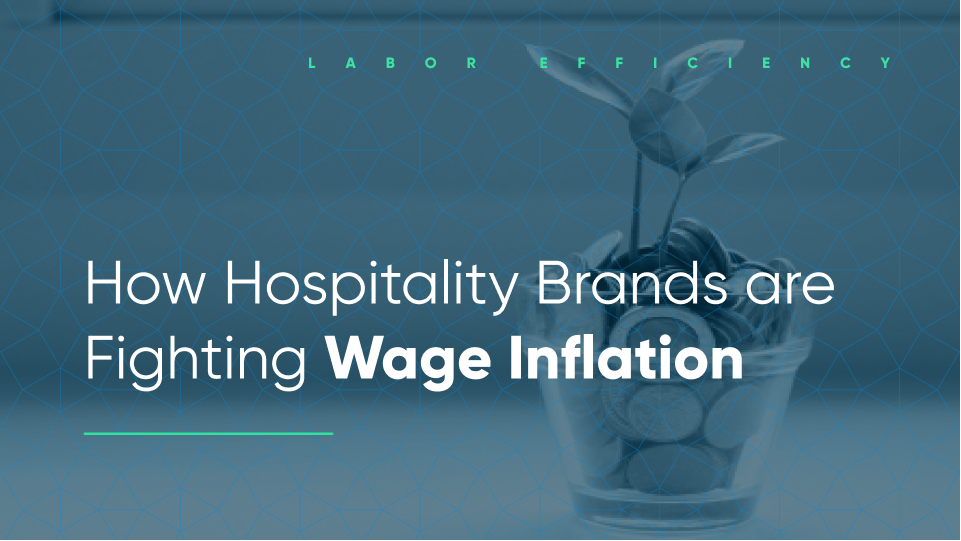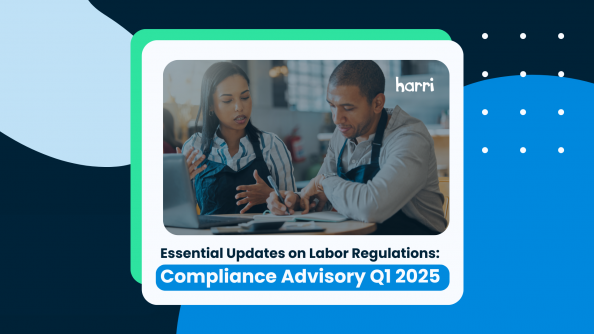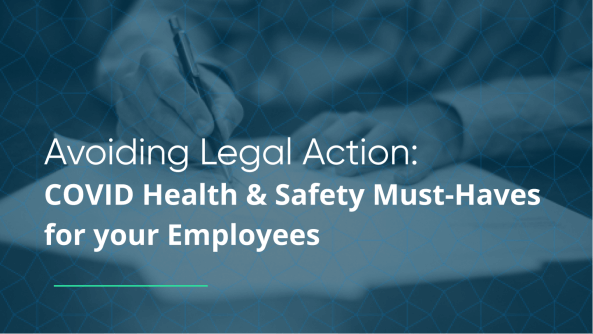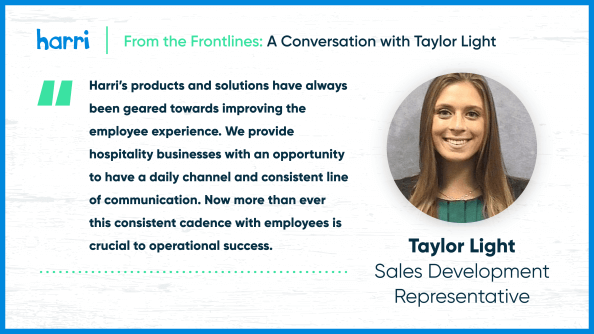How Hospitality Brands are Fighting Wage Inflation

- By Harri Insider Team | October 28, 2021
Hospitality’s labor climate has dramatically changed over the past year and a half. Take the $15/hr minimum wage movement. What once was a labor activist’s dream is now a reality for hospitality and other service-driven industries.
Even so, brands are finding themselves paying above $15/hr just to stay competitive. Unsurprisingly, our 2021 Wage Inflation Report found that 89% of hospitality operators would experience operational disruption and a loss to P&L in the wake of rising employee wages.
A jump from $10/hr to $15/hr for just one frontline employee is disruptive in itself. Now imagine increasing wages across the entire business? What about bumping manager-level pay to maintain a skills compensation scale?
While some brands are resorting to lofty menu price hikes and understaffing locations just to meet labor budgets, these strategies prove highly inefficient. They’re unsustainable and not conducive to operational success or team morale.
So, what’s the solution?
Diving into the data, smarter tech adoption is critical
To achieve labor efficiency, managers must optimize the entire employee experience encompassing everything from hiring and training to smarter team scheduling. Enterprise-grade hospitality brands are beginning to adopt new solutions to ensure air-tight processes without disrupting existing workflows.
In fact, our 2021 Wage Inflation Report found that workforce management technology is proving to be an essential tool in the battle against wage inflation. In a survey of hospitality managers covering +8,000 locations and +185,000 employees, we found that:
- 52% plan to adopt a predictive scheduling platform
- 49% plan to adopt a more efficient hiring platform
- 46% plan to adopt a labor compliance monitoring system
- 29% plan to adopt a biometrically controlled time & attendance system
Taking this data into consideration, it’s clear that the next frontier of digital transformation will have everything to do with the employee experience. Efficient processes, happy employees, higher retention. It all feeds into itself in a way that’s conducive to labor efficiency.
Let’s dive into how each tool can be used to fight wage inflation and achieve operational success.
Brands that turn to smarter, data-driven scheduling will unlock labor efficiency. Yet there are so many factors to consider when crafting team schedules.
Things like customer demand, employee availability, team skills, and even pandemic safety protocols dictate who should be scheduled when. Labor compliance comes into play too, of course, but we’ll touch on that in the next section.
Planning for these factors can be difficult in an industry as fast-paced as hospitality. That’s where predictive scheduling tools truly shine.
Our intelligent scheduling platform takes the guesswork out of building efficient schedules that fit the needs of both your customers and your employees. We take your historic sales data to determine which services will be in highest demand based on the day, shift time, nearby holidays, and even weather. We’ll then use that data to suggest ideal scheduling options given your available employee roster.
That significantly reduces the probability of overstaffing, understaffing, and unintended overtime. For brands that are already facing an understaffing problem (as most are!), this tool helps you make the most out of the employees that you have in your arsenal.
The icing on the cake? In addition to forecasting labor demand, we also factor in key employee metrics like shift preferences, job position, availability, and skillset. This opens new opportunities to cross-train staff while also giving them the shifts they prefer to work.
And let’s not forget that, when you empower your managers with smarter scheduling tools, you save them hours in strategizing efficient schedules — time they can then spend building a great guest experience.
Hospitality’s race for talent all comes down to speed. Operators want to catch the attention of candidates, bring them into the interview process, and set them up for success before competitors can get to them.
But fast hiring alone isn’t enough.
Brands need to be able to bring in the right talent, ones that are less likely to ghost and more likely to grow with your brand. Anything less than that is a waste of your managers’ time and a waste on hiring budget.
Which is exactly why end-to-end hiring platforms are growing in popularity.
Multi-channel job posting optimization, automated position-based smart screening, and a drag-and-drop ATS where all critical candidate information is accessible at a glance. It’s attention to these small details that transform a good hiring strategy into a great one.
Say hello to our Talent Acquisition Suite. From first touch to first day on the job, we make it easier for busy managers to source, screen, engage with, and hire quality talent.
Included in our end-to-end hiring tools is Carri, a conversational AI built for hospitality. Carri meets candidates where they are — think mobile applications via text, QR code, and their favorite messaging apps — to simplify the application process. From there, Carri manages the entire candidate lifecycle in a chat environment, significantly reducing administrative burdens from managers while also engaging with candidates in a way simple chatbots cannot.
Combined, these tools enable highly efficient hiring, reducing turnover while also ensuring a healthy candidate pipeline. That’s a huge win for talent acquisition professionals.
Hospitality brands operating in Fair Workweek jurisdictions are wide open to compliance fees. Anything from schedule changes to a miscalculation of weekly employee hours can result in premium payments. When you’re managing hundreds of employees, those payments add up quickly
It doesn’t help that Fair Workweek and other scheduling-related labor laws are incredibly complex to understand. Managers need to become legal experts just to comply, and slip-ups are inevitable when navigating fast-paced hospitality operations.
That’s why a wage and labor compliance solution is a must-have to achieve labor efficiency.
We built labor law compliance at the federal and local levels right into our scheduling platform to ensure hospitality operators are never alone. Everything from city-specific Fair Workweek rules to meal break management is calculated into our intelligent scheduling platform for carefree compliance.
Get notifications if a schedule or an adjustment to a schedule will violate a labor law. See real-time labor costs during the schedule building process, including compliance and overtime costs, for full transparency on labor spend.
For Fair Workweek jurisdictions, we automate the process of generating, updating, and reissuing good faith estimates. We even send alerts when an employee’s schedule varies too much from their current good faith estimate.
On the reporting side, full compliance auditing is available, covering everything from location-based compliance spend to seeing which manager’s approved non-compliant actions — and when premium payment was issued to affected employees.
Other than scheduling compliance we also remind managers when key employee documents must be renewed. Think working papers for minors, food certifications for back of house workers, alcohol certifications for bartenders, and more.
Time theft can quickly snowball from a few innocent mistakes to massive unnecessary labor costs. An early punch in here and there might only hab employees an extra half hour of pay. But when hundreds of employees are clocking in earlier or later than expected, those extra dollars add up quickly — especially if overtime or compliance fees are involved.
Shift restrictions are one way to prevent this, preventing employees from clocking in early or clocking out late unless approved by a manager. Biometric logins are another great tool here to prevent buddy punching.
But these features are only effective when they talk to your payroll system, ensuring complete timesheet accuracy across your entire organization.
Our biometric timeclock encompasses all of these and more, empowering hospitality brands to take control of labor costs at the unit level. Ensure accurate clock-ins, prevent unwanted labor costs, ensure compliance, and achieve complete wage transparency.
Interested in learning more about any of the tools mentioned here today? Chat with one of our workforce management experts to learn how Harri can achieve labor efficiency for your brand.




















